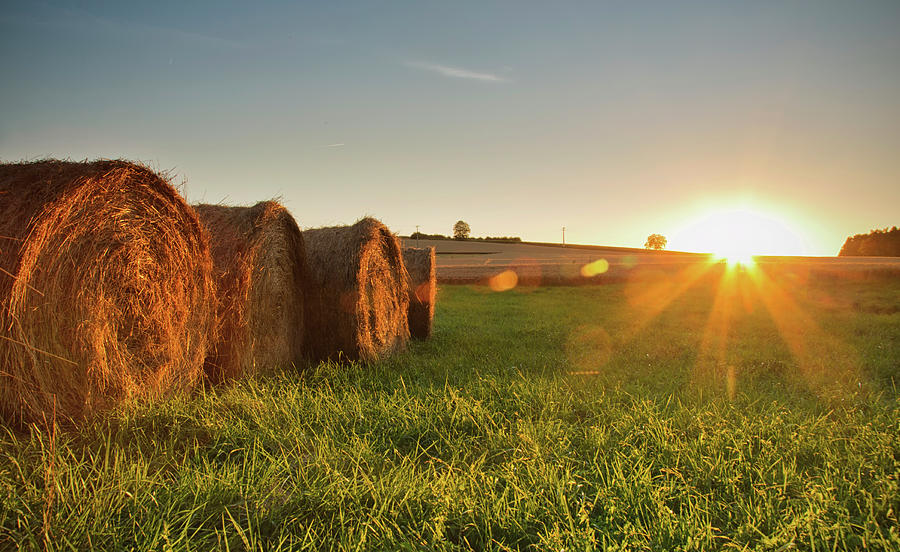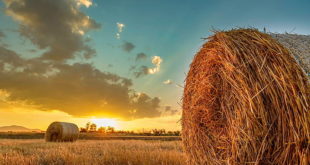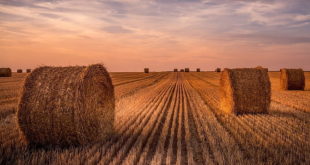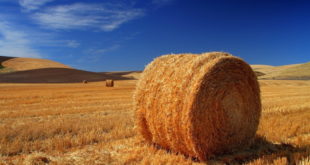
The obligation of qurbaani is a salient symbol of Islam. In the Quraan Majeed, special mention has been made in regard to the obligation of qurbaani.
Allah Ta’ala says:
لَن يَنَالَ اللَّـهَ لُحُومُهَا وَلَا دِمَاؤُهَا وَلَـٰكِن يَنَالُهُ التَّقْوَىٰ مِنكُمْ (سورة الحج: ٣٧)
It is neither the meat nor the blood (of the animal) that reaches Allah Ta’ala, instead it is the piety of your heart (sincerity and devotion) that reaches Him.
Similarly, the significance of qurbaani with its abundant virtues has been emphasised in the Mubaarak Ahaadith of Rasulullah (sallallahu alaihi wasallam).
عن زيد بن أرقم رضي الله عنه قال قال أصحاب رسول الله صلى الله عليه وسلم : يا رسول الله ما هذه الأضاحي ؟ قال : سنة أبيكم إبراهيم عليه السلام. قالوا : فما لنا فيها يا رسول الله ؟ قال : بكل شعرة حسنة . قالوا : فالصوف يا رسول الله ؟ قال : بكل شعرة من الصوف حسنة رواه أحمد وابن ماجه (سنن ابن ماجة، الرقم: ٣١٢٧)[1]
Hazrat Zaid bin Arqam (radhiallahu anhu) reports that the Sahaabah (radhiallahu anhum) once enquired from Hazrat Rasulullah (sallallahu ‘alaihi wasallam), “O Rasulullah (sallallahu ‘alaihi wasallam), what is the significance of this action of qurbaani?” Rasulullah (sallallahu ‘alaihi wasallam) replied, “It is the practice of your forefather, Ebrahim )alaihis salaam).” The Sahaabah (radhiallahu anhum) then asked, “O Rasulullah (sallallahu ‘alaihi wasallam)! What reward will we receive through carrying it out?” Rasulullah (sallallahu ‘alaihi wasallam) replied, “For every strand of hair (on the animal), you will receive a reward.” The Sahaabah (radhiallahu anhum) then asked, “O Rasulullah (sallallahu ‘alaihi wasallam), what about wool?” Rasulullah (sallallahu ‘alaihi wasallam) replied, “For every fibre of wool (on the animal), you will receive a reward.”
Hazrat Rasulullah (sallallahu ‘alaihi wasallam) had greatly emphasised the importance of upholding this great symbol of Deen, and had sounded severe admonition for those who, despite qurbaani being compulsory upon them, failed to fulfil it. Hazrat Rasulullah (sallallahu ‘alaihi wasallam) said:
وعن أبي هريرة رضي الله عنه قال قال رسول الله صلى الله عليه وسلم من وجد سعة لأن يضحي فلم يضح فلا يحضر مصلانا(المستدرك للحاكم، الرقم: ٣٤٦٨)[2]
“The one who possesses the means to carry out the qurbaani yet does not do so (despite it being waajib upon him), then such a person should not come close to our Eid gaah on the day of Eid (i.e. such a person should not celebrate this happy occasion of Eid with the Muslims).”[3]
Sunnats And Aadaab Of Qurbaani
1. On the day of Eid, the best and most beloved action to Allah Ta’ala is the spilling of blood.
عن عائشة أن رسول الله صلى الله عليه وسلم قال: ما عمل آدمي من عمل يوم النحر أحب إلى الله من إهراق الدم، إنه ليأتي يوم القيامة بقرونها وأشعارها وأظلافها، وأن الدم ليقع من الله بمكان قبل أن يقع من الأرض، فطيبوا بها نفسا (سنن الترمذي، الرقم: ١٤٩٣ وقال:هذا حديث حسن غريب)
Hazrat Aaishah (radhiallahu anha) reports that Rasulullah (sallallahu alaihi wasallam) said, “There is no action that a servant carries out during the days of qurbaani which is dearer and more beloved to Allah Ta’ala than the spilling of blood (i.e. the sacrificing of animals). The sacrificed animal shall come on the Day of Qiyaamah with its horns, hair and hooves. The sacrifice is accepted by Allah Ta’ala even before the blood reaches the ground. Therefore, happily carry out the qurbaani (i.e. with your heart being pleased and happy to fulfil the command of Allah Ta’ala.)”
2. Before the qurbaani as well as at the time of qurbaani, one should not be cruel to the animal or ill-treat it in any way. Rather, one should treat the animal with kindness and compassion.
عن شداد بن أوس عن رسول الله صلى الله عليه وسلم قال : إن الله تبارك وتعالى كتب الإحسان على كل شيء فإذا قتلتم فأحسنوا القتلة وإذا ذبحتم فأحسنوا الذبح وليحد أحدكم شفرته وليرح ذبيحته.(صحيح مسلم، الرقم: ١٩٥٥)
Hazrat Shaddaad bin Aws (radhiallahu anhu) reports that Rasulullah (sallallahu alaihi wasallam) said, “Allah Ta’ala has ordained kindness upon every living creature. When you kill (the enemy in jihaad), then kill in a good manner (i.e. do not mutilate the body etc.), and when you slaughter, then slaughter in a good manner and sharpen your knives and allow the animal to die easily.”
3. If one possesses the means, then it is mustahab for one to slaughter a nafl qurbaani on behalf of Hazrat Rasulullah (sallallahu alaihi wasallam), the Sahaabah (radhiallahu anhum) and the pious of the Ummah.
عن علي رضي الله عنه أنه كان يضحى بكبشين أحدهما عن النبي صلى الله عليه و سلم والآخر عن نفسه فقيل له فقال أمرني به يعني النبي صلى الله عليه و سلم فلا أدعه أبدا (سنن الترمذي، الرقم: ١٤٩٥ وقال: هذا حديث غريب)
It is reported regarding Hazrat Ali (radhiallahu anhu) that (every year, at the time of qurbaani,) he would slaughter two sheep; one on behalf of Hazrat Rasulullah (sallallahu alaihi wasallam) and the other on behalf of himself. When asked (why he had slaughtered on behalf of Hazrat Rasulullah (sallallahu alaihi wasallam)), he replied, “Rasulullah (sallallahu alaihi wasallam) had told me to do so, thus I will never forego this action as long as I live.”
4. One should hasten to fulfil the obligation of qurbaani. Carrying out the qurbaani on the first day is more rewarding than the second day, and carrying out the qurbaani on the second day is more rewarding than the third day.
عن جابر بن عبد الله قال : شهدت مع النبي صلى الله عليه و سلم الأضحى بالمصلى فلما قضى خطبته نزل عن منبره فأتى بكبش فذبحه رسول الله صلى الله عليه و سلم بيده وقال بسم الله والله أكبر هذا عني وعمن لم يضح من أمتي (سنن الترمذي، الرقم: ١٥٢١ وقال:هذا حديث غريب من هذا الوجه)
Hazrat Jaabir (radhiallahu anhu) reports, “I was present with Hazrat Rasulullah (sallallahu alaihi wasallam) at the Eidgah on the occasion of Eidul Adha. When Hazrat Rasulullah (sallallahu alaihi wasallam) completed the khutbah, he descended from the mimbar (i.e. the raised place upon which he stood to deliver the khutbah[3]) and a sheep was brought before him (for qurbaani). Hazrat Rasulullah (sallallahu alaihi wasallam) slaughtered the sheep with his own blessed hand while reciting the takbeer بسم الله والله اكبر and saying, ‘This qurbaani is on behalf of myself and those from my Ummah who cannot perform qurbaani (i.e. I convey the reward of this qurbaani to those from my Ummah who cannot perform qurbaani).'”
5. It is sunnah for one to not consume anything on the morning of Eidul Adha until one returns from the Eid salaah.
عن ابن بريدة عن أبيه رضي الله عنه أن رسول الله صلى الله عليه و سلم كان لا يخرج يوم الفطر حتى يأكل . وكان لا يأكل يوم النحر حتى يرجع (سنن ابن ماجة، الرقم: ١٧٥٦، سنن الترمذي، الرقم: ٥٤٢ وقال: حديث بريدة بن حصيب الأسلمي حديث غريب)
Hazrat Buraidah (radhiallahu anhu) reports that on the occasion of Eidul Fitr, Rasulullah (sallallahu alaihi wasallam) would not leave (for the Eid Salaah) until he consumed something. However, on the occasion of Eidul Adha, he would not consume anything until he returned (from the Eid salaah. When he returned from the Eid salaah, the first thing he consumed was the liver of the sacrificial animal).
6. Upon returning from the Eid salaah, the first thing that one should consume should be the meat of the sacrificial animal (as this was the first thing that Rasulullah (sallallahu alaihi wasallam) consumed upon returning from the Eid Salaah).
حدثني عبد الله بن بريدة، عن أبيه قال: كان رسول الله صلى الله عليه وسلم لا يغدو يوم الفطر حتى يأكل، ولا يأكل يوم الأضحى حتى يرجع فيأكل من أضحيته (مسند أحمد ٨٨/٣٨ وفي رواية البيهقي وكان إذا رجع أكل من كبد أضحيته السنن الكبرى للبيهقي، الرقم: ٦١٦١) [4]
Hazrat Buraidah (radhiallahu anhu) reports that on the occasion of Eidul Fitr, Rasulullah (sallallahu alaihi wasallam) would not leave for the Eid salaah until he consumed something. However, on the occasion of Eidul Adha, Rasulullah (sallallahu alaihi wasallam) would not consume anything until he returned from the Eid Salaah. Thereafter, the (first) thing that he consumed was the meat of the sacrificial animal.
In the narration of Bayhaqi, it is reported that the first thing which Rasulullah (sallallahu alaihi wasallam) consumed was the liver of the sacrificial animal.
7. It is impermissible for one to fast on the 10th, 11th, 12th and 13th of Zul Hijjah.
عن نبيشة الهذلي رضي الله عنه قال قال رسول الله صلى الله عليه وسلم أيام التشريق أيام أكل وشرب وذكر الله (صحيح مسلم، الرقم:١١٤١)
It is reported from Hazrat Nubaisha (radhiallahu anhu) that Rasulullah (sallallahu alaihi wasallam) said, “The days of tashreeq are days of eating, drinking and remembering Allah Ta’ala.”
8. One should try, within one’s means, to purchase the best animal for qurbaani. The healthier (i.e. the more valuable) the animal, the more the reward one will receive in the Hereafter.
عن عائشة وعن أبي هريرة أن رسول الله صلى الله عليه و سلم كان إذا أراد أن يضحي اشترى كبشين عظيمين أقرنين أملحين موجوءين . فذبح أحدهما عن أمته لمن شهد لله بالتوحيد وشهد له بالبلاغ . وذبح الآخر عن محمد وعن آل محمد صلى الله عليه و سلم (ابن ماجة، الرقم: ٣١٢٢ وقال البوصري رحمه الله في مصباح الزجاجة ٢٢٢/٣: هذا إسناد حسن)
Hazrat Aaishah (radhiallahu anha) and Hazrat Abu Hurairah (radhiallahu anhu) had reported that when Hazrat Rasulullah (sallallahu alaihi wasallam) intended making qurbaani, he purchased two large, horned, black and white, castrated rams. He slaughtered one on behalf of his entire Ummah, for those who bear testimony upon tawheed and upon him conveying (deen to the ummah) and he slaughtered the other one on behalf of himself and the family of Nabi (sallallahu alaihi wasallam) (i.e. He (sallallahu alaihi wasallam) conveyed the reward of the first to his entire Ummah, and the second to his family).
9. It is mustahab to fatten the animal for Qurbaani.
قال يحيى بن سعيد سمعت أبا أمامة بن سهل قال كنا نسمن الأضحية بالمدينة وكان المسلمون يسمنون (صحيح البخاري، الرقم: ٥٥٥٣)
Hazrat Yahya bin Sa’eed (rahmatullahi alaih) reports that he heard Hazrat Abu Umaamah bin Sahl (radhiallahu anhu) say, “We used to fatten our qurbaani animals in Madinah Tayyibah, and all the Muslims (i.e. the Sahaabah) used to do the same.”
10. If one is capable, it is best for him to slaughter his animal himself. If this is not possible, then he should at least witness his animal being slaughtered, provided hijaab is observed between the males and the females (i.e. intermingling should not take place).
عن علي رضي الله عنه أن رسول الله صلى الله عليه و سلم قال يا فاطمة قومي فاشهدي أضحيتك فإن لك بأول قطرة تقطر من دمها مغفرة لكل ذنب أما إنه يجاء بلحمها ودمها توضع في ميزانك سبعين ضعفا قال أبو سعيد يا رسول الله هذا لآل محمد خاصة فإنهم أهل لما خصوا به من الخير أو للمسلمين عامة قال لآل محمد خاصة وللمسلمين عامة (الترغيب والترهيب، الرقم: ١٦٦٢)[5]
Hazrat Ali (radhiallahu anhu) reports that on one occasion, Hazrat Rasulullah (sallallahu alaihi wasallam) told Hazrat Faatimah (radhiallahu anha), “Witness your qurbaani animal being sacrificed. With the first drop of blood that falls, your sins will be forgiven. Its meat and blood will be placed in your scale of good deeds and multiplied seventy times.” Hazrat Abu Saeed (radhiallahu anhu) asked Hazrat Rasulullah (sallallahu alaihi wasallam), “O Rasulullah (sallallahu alaihi wasallam)! Is this reward exclusively reserved for your family, as they are entitled to special grace or is this reward for all Muslims?” Hazrat Rasulullah (sallallahu alaihi wasallam) replied, “It has specifically been revealed in regard to my family but it (the virtue and reward) is also for my ummah in general.”
11. A woman can also slaughter her own animal, provided she does not appear before strange men.
12. Do not slaughter the animal in view of other animals.
13. When slaughtering, one should use a sharp knife and should slaughter swiftly. One should not cause difficulty to the animal by using a blunt knife or slaughtering the animal slowly.
عن عبد الله بن عمر رضي الله عنهما قال أمر رسول الله صلى الله عليه و سلم بحد الشفار وأن توارى عن البهائم. وقال إذا ذبح أحدكم فليجهز (سنن ابن ماجة، الرقم: ٣١٧٢)[6]
Hazrat Abdullah bin Umar (radhiallahu anhuma) reports that Rasulullah (sallalllahu alaihi wasallam) commanded that the knives be sharpened (before slaughtering the animal), and that the slaughtering be concealed from the other animals, and he said, “When you slaughter the animal, then slaughter swiftly (so that the least amount of pain is caused to the animal).”
14. Do not sharpen the knife before the animal.
عن ابن عباس رضي الله عنهما أن رجلا أضجع شاة وهو يحد شفرته فقال النبي صلى الله عليه وسلم أتريد أن تميتها موتات هلا أحددت شفرتك قبل أن تضجعها (المستدرك على الصحيحين للحاكم، الرقم:٧٥٦٣، وقال الحاكم: هذا حديث صحيح على شرط البخاري ولم يخرجاه وقال الذهبي: على شرط البخاري)
Hazrat ibnu Abbaas (radhiallahu anhuma) reports that on one occasion, a person had laid his animal down for slaughtering and was sharpening his knife (in view of the animal). Hazrat Rasulullah (sallallahu alaihi wasallam) reprimanded him saying, “Do you want to kill this animal many times? Why did you not sharpen your knife before you lay your animal down (to be slaughtered)?”
15. One should bring the animal to the place of slaughter gently. One should not drag the animal.
عن ابن سيرين قال: رأى عمر بن الخطاب رجلا يسحب شاة برجلها ليذبحها فقال له ويلك قدها إلى الموت قودا جميلا (مصنف عبد الرزاق، الرقم: ٨٦٠٥)[7]
Hazrat ibnu Sireen (rahmatullahi alaih) reports that Hazrat Umar (radhiallahu anhu) once saw a man dragging his goat by its leg to slaughter it. Hazrat Umar (radhiallahu anhu) reprimanded him saying, “Woe be to you! Lead it towards its death in a beautiful manner!”
16. One should place the animal on its left side facing towards the qiblah.[8]
عن أنس قال ضحى رسول الله صلى الله عليه وسلم بكبشين أملحين أقرنين ذبحهما بيده وسمى وكبر ووضع رجله على صفاحهما (صحيح البخاري، الرقم: ٥٥٦٥)
Hazrat Anas (radhiallahu anhu) reports that Rasulullah (sallallahu alaihi wasallam) slaughtered two horned, black and white rams. He slaughtered them with his own blessed hand while reciting the tasmiyah and takbeer and placed his leg on their sides (i.e. the animals were made to lie on the left side so that the animal faces the Qiblah).
17. One should not commence skinning the animal until there is no sign of life left in the body.
18. At the time of slaughtering, one should recite the tasmiyah in the following manner:
بِسمِ اللهِ اللهُ أكْبَر
In the name of Allah Ta’ala, and Allah Ta’ala is the greatest.
19. If the tasmiyah was left out intentionally, the animal will be carrion.
وَلَا تَأْكُلُوا مِمَّا لَمْ يُذْكَرِ اسْمُ اللَّـهِ عَلَيْهِ
And do not eat (of that meat) on which the name of Allah Ta’ala had not been taken (at the time of slaughtering).
20. Before slaughtering, it is sunnah for one to recite the following dua:
إنِّي وَجَّهْتُ وَجْهِيَ لِلَّذِي فَطَرَ السَّمَاوَاتِ وَالْأَرْضَ عَلَى مِلَّةِ إِبْرَاهِيمَ حَنِيفًا وَمَا أَنَا مِنَ الْمُشْرِكِينَ
إنَّ صَلَاتِي وَنُسُكِي وَمَحْيَايَ وَمَمَاتِي لِلَّـهِ رَبِّ الْعَالَمِينَ لَا شَرِيكَ لَهُ وَبِذَلِكَ أُمِرْتُ وَأَنَا مِنَ الْمُسْلِمِينَ اللهُمَّ مِنكَ وَلَكَ
I have firmly turned myself towards that Being who has created the heavens and the earth, while I am upon the Straight Deen of Ebrahim )alaihis salaam), and I am not among the Mushrikeen. Verily, my salaah, my sacrifice, my life and my death are for Allah Ta’ala, Lord of the worlds. He has no partner, with this I have been commanded and I am among the Muslimeen. O Allah! This sacrifice is due to You granting us the ability to do so and it is for You.
21. It is mustahab for one to eat from the qurbaani animal and to feed others from it as well. Though it is permissible for one to keep all the qurbaani meat for one’s own needs, it is best that the qurbaani meat be divided into three portions. One portion should be kept for one’s immediate family, the second portion be distributed among one’s relatives and friends, and the third portion should be distributed among the poor and needy.
عن عابس بن ربيعة قال قلت لأم المؤمنين : أكان رسول الله صلى الله عليه و سلم ينهى عن لحوم الأضاحي ؟ قالت لا ولكن قل من كان يضحي من الناس فأحب أن يطعم من لم يكن يضحي ولقد كنا نرفع الكراع فنأكله بعد عشرة أيام (سنن الترمذي، الرقم: ١٥١١، وقال: هذا حديث حسن صحيح)
It is reported that Hazrat Aabis bin Rabee’ah (radhiallahu anhu) once asked the mother of the believers, Hazrat Aaishah (radhiallahu anha), “Did Rasulullah (sallallahu alaihi wasallam) prevent us from eating the meat of the qurbaani animal?” Hazrat Aaishah (radhiallahu anha) replied, “No, (Rasulullah (sallallahu alaihi wasallam) allowed us to eat as much meat of the qurbaani animal as we wish and for as long as we wish). However, (during the mubaarak life of Rasulullah (sallallahu alaihi wasallam)), there were not a lot of people who could afford to carry out qurbaani. Hence, Rasulullah (sallallahu alaihi wasallam) liked that those people who were unable to perform qurbaani be fed from the meat. (As for our eating of the meat, then) we would consume from the qurbaani animal’s trotters after ten days (i.e. we would even store meat to consume later on).”
22. It is recorded in the Hadith that the best of actions carried out on the day of qurbaani (from the monetary ibaadaat) is the spilling of blood. However, Rasulullah (sallallahu alaihi wasallam) has explained that the action that will earn one even greater reward is to join family ties that have been severed. Hence, together with carrying out the obligation of qurbaani, we should ensure we join and maintain family ties.
عن ابن عباس رضي الله عنهما قال قال رسول الله صلى الله عليه و سلم في يوم أضحى ما عمل آدمي في هذا اليوم أفضل من دم يهراق إلا أن يكون رحما مقطوعة توصل (المعجم الكبير للطبراني، الرقم: ١٠٩٤٨) [9]
Hazrat ibnu Abbaas (radhiallahu anhuma) reports that Rasulullah (sallallahu alaihi wasallam) said on the day of Eidul Adha, “There is no action that a servant carries out on this day which is more virtuous than the spilling of blood (qurbaani), except for the one who joins family ties that have been severed.”
[1] سنن ابن ماجه، الرقم: ٣١٢٧، المستدرك على الصحيحين للحاكم، الرقم: ٣٤٦٧، وقال: هذا حديث صحيح الإسناد ولم يخرجاه، وتعقبه الذهبي، فقال: عائذ الله (أحد رواة هذا الحديث) قال أبو حاتم منكر الحديث. انتهى كلامه، قلت: يعمل بمثل هذا الحديث الضعيف في فضائل الاعمال لاسيما إذا كان له شواهد.
منها: حديث عبد الله بن عمرو عند الطبراني في المعجم الكبير قال: أفاض جبريل بإبراهيم عليهما السلام إلى منى فصلى به الظهر والعصر والمغرب والعشاء والصبح ثم غدا من منى إلى عرفات فصلى به الصلاتين ثم وقف حتى غابت الشمس ثم أتى به المزدلفة فنزل بها فبات بها ثم قال: فصلى كأعجل ما يصلي أحد من المسلمين ثم دفع به إلى منى فرمى وذبح وحلق ثم أوحى الله عز وجل إلى محمد صلى الله عليه وسلم أن اتبع ملة إبراهيم حنيفا وما كان من المشركين (قال الهيثمي: رواه الطبراني في الكبير بأسانيد ورجال بعضها رجال الصحيح وفي بعض طرقها: أتى رجل عبد الله بن عمرو فقال: إني مضعف من الحمولة مضعف من أهل أفترى لي أن أتعجل فقال له عبد الله بن عمرو: قدم إبراهيم صلى الله عليه وسلم فطاف بالبيت وطاف بين الصفا والمروة ثم راح فصلى الظهر بمنى فذكر نحوه، مجمع الزوائد، الرقم: ٥٥٤٠)
ومنها: حديث ابن مربع الأنصاري عند الترمذي، فعن يزيد بن شيبان قال: أتانا ابن مربع الأنصاري ونحن وقوف بالموقف مكانا يباعده عمرو فقال: إني رسول رسول الله صلى الله عليه وسلم إليكم يقول: كونوا على مشاعركم فإنكم على إرث من إرث إبراهيم، وفي الباب عن علي وعائشة وجبير بن مطعم والشريد بن سويد الثقفي، حديث ابن مربع الأنصاري حديث حسن لا نعرفه إلا من حديث ابن عيينة عن عمرو بن دينار وابن مربع اسمه يزيد بن مربع الأنصاري وإنما يعرف له هذا الحديث الواحد (سنن الترمذي، الرقم: ٨٨٣)
ومنها: أثر ابن المسيب عند عبد الرزاق قال: لا ينحر إلا في منحر إبراهيم (مصنف عبد الرزاق، الرقم: ٨٤٨٦)
[2] وقال المنذري في الترغيب والترهيب، ١٠١/٢، رواه الحاكم مرفوعا هكذا وصححه وموقوفا ولعله أشبه
[3] The word ‘mimbar’ mentioned in this Hadith refers to a raised place (perhaps the ground at that spot was slightly raised). Hazrat Rasulullah (sallallahu alaihi wasallam) stood on this spot and delivered the khutbah. The Muhadditheen explain that Hazrat Rasulullah (sallallahu alaihi wasallam) used a mimbar to deliver the khutbah of Jumu’ah, but he did not use a mimbar to deliver the khutbah of Eid (as proven in other Ahaadith). It is for this reason that the Muhadditheen interpret the word ‘mimbar’ in this Hadith to mean a raised place. However, it is proven in some narrations that Hazrat Uthmaan (radhiallahu anhu) used a mimbar to deliver the khutbah of Eid. Hence, using a mimbar to deliver the khutbah of Eid is permissible. (Fathul Baari 2/536, Al-Durrul Mandhood 2/457)From this Hadith we understand that the dua which Rasulullah (sallallahu alaihi wasallam) made on the occasion of Eid was after the Eid Salaah and not after the khutbah as it is clearly mentioned in this Hadith that Rasulullah (sallallahu alaihi wasallam) slaughtered immediately after the khutbah.
[4] ذكر الذهبي هذه الرواية في المهذب ١٢١٩/٣ بألفاظ متقاربة فقال: (رواه) الطيالسي ومسلم بن إبراهيم قالا نا ثواب بن عتبة نا عبد الله بن بريدة عن أبيه: كان رسول الله صلى الله عليه وسلم لا يخرج يوم الفطر حتى يطعم ولا يأكل يوم النحر حتى يذبح، وقال أبو عاصم عن ثواب: حتى يرجع وقال مسلم عنه: حتى يرجع فيأكل من أضحيته قلت: ثواب قواه ابن معين ولينه أبو زرعة.
أخبرنا ابن عبدان أنا أحمد بن عبيد نا سعيد بن عثمان الأهوازي ثنا علي بن بحر القطان نا الوليد بن مسلم نا ابن مهدي عن عقبة بن الأصم عن ابن بريدة عن أبيه: كان رسول الله صلى الله عليه وسلم إذا كان يوم الفطر لم يخرج حتى يأكل شيئا وإذا كان الأضحى لم يأكل حتى يرجع وكان إذا رجع أكل من كبد أضحيته، قلت: لم يتابع عليه وظني أن عقبة هو ابن عتبة المذكور قبله غلط في اسمه (المهذب للذهبي ١٢١٩/٣)
[5] رواه أبو القاسم الأصبهاني كما في الترغيب والترهيب، الرقم: ١٦٦٢ وعن أبي سعيد رضي الله عنه قال قال رسول الله صلى الله عليه وسلم يا فاطمة قومي إلى أضحيتك فاشهديها فإن لك بأول قطرة تقطر من دمها أن يغفر لك ما سلف من ذنوبك قالت يا رسول الله ألنا خاصة أهل البيت أو لنا وللمسلمين قال بل لنا وللمسلمين رواه البزار وأبو الشيخ ابن حبان في كتاب الضحايا وغيره وفي إسناده عطية بن قيس وثق وفيه كلام ورواه أبو القاسم الأصبهاني عن علي ولفظه أن رسول الله صلى الله عليه وسلم قال يا فاطمة قومي فاشهدي أضحيتك فإن لك بأول قطرة تقطر من دمها مغفرة لكل ذنب أما إنه يجاء بلحمها ودمها توضع في ميزانك سبعين ضعفا قال أبو سعيد يا رسول الله هذا لآل محمد خاصة فإنهم أهل لما خصوا به من الخير أو للمسلمين عامة قال لآل محمد خاصة وللمسلمين عامة وقد حسن بعض مشايخنا حديث علي هذا والله أعلم (الترغيب والترهيب، الرقم: ١٦٦٣)
[6] قال العلامة البوصيري رحمه الله في مصباح الزجاجة (٢٣٣/٣): إن إسنادي حديث ابن عمر ضعيف لأن مدار الإسنادين على عبد الله بن لهيعة وهو ضعيف وله شاهد من حديث شداد بن أوس رواه مسلم في صحيحه وأصحاب السنن الأربعة
[7] رواته كلهم ثقات، وقد ذكره المنذري في الترغيب والترهيب، الرقم: ١٦٧٤ بلفظة “عن”، إشارة إلى كونه صحيحا أو حسنا أو ما قاربهما عنده كما بين أصله في مقدمة كتابه ٥٠/١
[8] (و) كره (ترك التوجه إلى القبلة) لمخالفته السنة (الدر المختار ٢٩٦/٦)
وقال العلامة ابن عابدين – رحمه الله -: قوله ( لمخالفته السنة ) أي المؤكدة لأنه توارثه الناس فيكره تركه بلا عذر إتقاني (رد المحتار ٢٩٦/٦)
(وندب إحداد الشفرة) قبل الإضجاع لورود الأثر وأن يضجع بالرفق وعلى اليسار ويوجه إلى القبلة ويشد منها ثلاث قوائم فقط ويذبح باليمين ويسرع على الذبح وإجراء الشفرة على الحلق (مجمع الأنهر ٥١١/٢)
وفي بعض الروايات وليشد قوائمه وليلقه على شقه الأيسر وليوجهه نحو القبلة وليسم الله تعالى عليه والذبح بما قلنا أسهل على الحيوان وأقرب إلى راحته (بدائع الصنائع ٦٠/٥)
وأدب الذبح سبعة اشياء أحدها إضجاع الشاة على الأرض بالرفق والثاني إضجاعها على اليسار والثالث إقبال وجهها إلى القبلة (النتف في الفتاوى ٢٣٠/١)
(فأضجعه) على اليسار وهو الظاهر لأنه أيسر في الذبح (بذل المجهود ٥٣٨/٩)
عن جابر بن عبد الله رضي الله عنه قال ذبح النبى صلى الله عليه وسلم يوم الذبح كبشين أقرنين أملحين موجئين فلما وجههما قال إنى وجهت وجهى للذي فطر السموات والأرض على ملة إبراهيم حنيفا وما أنا من المشركين إن صلاتي ونسكي ومحياي ومماتي لله رب العالمين لا شريك له وبذلك أمرت وأنا من المسلمين اللهم منك ولك عن محمد وأمته باسم الله والله أكبر ثم ذبح (سنن أبي داود، الرقم: ٢٧٩٧)
[9] وقال العلامة الهيثمي رحمه الله في مجمع الزوائد (الرقم: ٥٩٣٩): رواه الطبراني في الكبير وفيه يحيى بن الحسن الخشني وهو ضعيف وقد وثقه جماعة
 Ihyaaud Deen An Effort to Revive Deen in Totality
Ihyaaud Deen An Effort to Revive Deen in Totality



